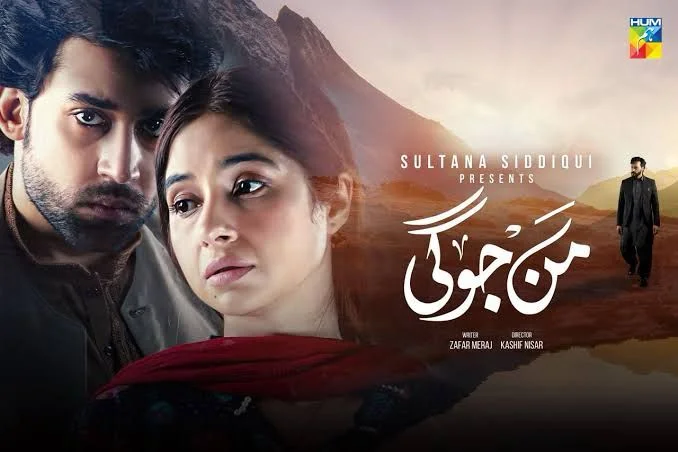

In an era where few dramas dare to touch controversial subjects, Mann Jogi emerges as a courageous beacon, confronting the sensitive and often misused tradition of Halala. This drama, airing on HUM TV, brings together a stellar cast including Sabeena Farooq, Bilal Abbas Khan, and Mirza Gohar Rasheed to explore how Halala can be manipulated as a tool of exploitation. Through a powerful narrative, Mann Jogi delves deep into the emotional and societal turmoil faced by women in a patriarchal society.
Halala: Exploiting Women in the Name of Tradition
At the heart of Mann Jogi lies the harrowing tale of the protagonist (played by Sabeena Farooq), who is forced into the practice of Halala after being divorced by her first husband (played by Mirza Gohar Rasheed). Halala, intended as a provision in Islamic law, is meant to serve as a safeguard in cases of impulsive divorce. However, Mann Jogi portrays the dark reality of how men manipulate this practice to control and demean women.
In the drama, the protagonist’s ex-husband represents the societal archetype of a “strong man,” someone who exerts dominance and expects unquestioning submission from his wife. When he divorces her in a fit of anger, societal pressure and the intricacies of religious law force her into Halala, a deeply painful experience that strips her of her dignity. The series unpacks how Halala, when misused, becomes a tool of exploitation, leaving women vulnerable to manipulation and control.
The character of Gohar Rasheed powerfully embodies the societal view of men who uphold traditional values at the cost of women’s agency. His disdain for his wife’s autonomy is palpable, and his selfish decisions plunge her into emotional and psychological turmoil. This portrayal reflects how, in many cases, men can misuse cultural norms for their benefit, leaving women to bear the brunt of unjust consequences.
Societal Pressure and the Stripping of Women’s Rights
Sabeena Farooq’s character is constantly weighed down in Mann Jogi by the pressure to maintain her family’s honor. She endures the painful Halala process, despite the emotional toll it takes on her, because of the societal expectation that a woman must do anything to preserve her marriage.
A powerful moment in the series is when Sabeena’s character tearfully reflects, “For them, it’s just a ritual; for me, it’s my life. I’m not a puppet to be discarded and picked up again.” This line encapsulates the inner conflict many women experience when caught between the desire to reclaim their agency and the overwhelming pressure to conform to societal norms.
In Mann Jogi, the community around her becomes a silent participant in her suffering, highlighting how deeply ingrained social pressures perpetuate women’s struggles. Her in-laws and family members encourage her to accept the humiliations of Halala as a necessary evil, further stripping her of any sense of autonomy.
The Rise of Intolerance: A Reflection of Society
Beyond the personal story, Mann Jogi acts as a reflection of rising intolerance in our society. This intolerance is particularly evident among the male characters, who are driven by anger, pride, and the need for control. Bilal Abbas Khan’s character, the protagonist’s second husband, is a contrast to this, embodying a more empathetic and emotionally intelligent approach.
Kashif Nisar, the director, once described the drama as a “necessary commentary on a fractured, chaotic, divided, and intolerant society,” and this message is seen in how Mann Jogi critiques the toxic masculinity that often dictates relationships. As the men in the drama grapple with their need for dominance, they reflect the broader societal tension where emotions like anger and control have become the dominant forces.
In one of the most intense scenes, Gohar Rasheed’s character angrily declares, “A woman should never forget her place,” highlighting the deep-seated belief in male superiority that perpetuates intolerance. The drama deftly explores how this attitude not only harms women but also leads to the fragmentation of relationships and societal bonds.
Vulnerability Viewed as Weakness: The Role of Men
An unexpected and refreshing angle in Mann Jogi is how it portrays vulnerability in men. Bilal Abbas Khan’s character, the protagonist’s second husband, defies the traditional notion of masculinity by offering emotional support rather than control. Unlike her first husband, who views vulnerability as a sign of weakness, Bilal’s character empowers her, giving her the strength to stand up for herself.
He tells her at one point, “Your strength is your voice. Don’t let anyone silence it.” This moment marks a turning point for the protagonist, as she begins to realize that true support doesn’t come from dominance, but from someone who encourages her to reclaim her power.
This portrayal of vulnerability in men is rare in mainstream dramas and reflects a growing awareness of the need to redefine what it means to be “strong.” In Mann Jogi, the second husband is seen as a source of strength precisely because he allows her to find her path, in contrast to her first husband, whose version of strength only left her feeling powerless.
Empowerment through Emotional Support
The true heart of the drama lies in the protagonist’s journey toward empowerment, which is made possible by her second husband. He not only respects her autonomy but actively encourages her to rise above societal expectations. While her first husband left her nothing but a “slave” to tradition and control, her second husband offered her the space to heal and reclaim her dignity.
Mann Jogi shows how true strength in a relationship comes not from control, but from mutual respect and emotional support. This dynamic shifts the traditional narrative of male dominance and female submission, offering a more balanced and emotionally healthy portrayal of what a supportive partnership can look like.
Conclusion: A Drama That Holds a Mirror to Society
Mann Jogi is more than a drama; it’s a powerful commentary on the complexities of human relationships and societal dynamics. By addressing Halala and the exploitation of women, it offers a raw and unfiltered perspective on the struggles women face in a society driven by intolerance and power dynamics. It forces viewers to confront uncomfortable truths about gender roles, societal pressure, and the impact of an unforgiving social landscape.
As this drama continues to unfold, it holds a mirror up to our fractured society, challenging us to rethink the way we perceive strength, vulnerability, and justice.


All Rights Reserved © 2025 Femmerepublica. Powered by TechWrath